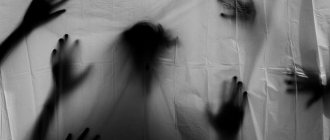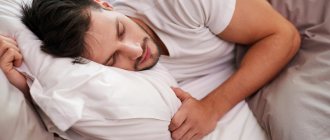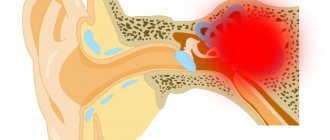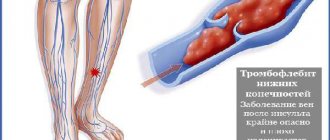Every night we go to bed and plunge into the world of dreams. But not everyone manages to get enough sleep. While some enjoy a relaxing holiday, others snore and experience sleep apnea. This, in turn, leads to chronic sleepiness and increases the risk of developing heart disease, hypertension and type 2 diabetes.
Many people snore. Some more often, some only occasionally, for example, after drinking alcohol before bed. With sleep apnea syndrome (sleep apnea syndrome), snoring occurs every night and has its own specifics. It is characterized by increasing intensity/loudness and alternates with unexpected “quiet” pauses, during which the person cannot inhale and air does not enter the lungs. If sleep apnea occurs more than 5 times per hour and lasts longer than 10 seconds, this is a sign of a serious health problem. In especially severe cases, respiratory pauses (episodes of apnea) last 2-3 minutes, and pulmonary ventilation may be completely absent for 60% of the total time of night rest.
You can suspect you have sleep apnea based on the following list of specific symptoms.
| During sleep | During the daytime |
| Loud snorting snoring | Increased daytime sleepiness |
| Relatives report loud snoring or breathing pauses | Non-restorative sleep, fatigue |
| Waking up from suffocation/lack of air, insomnia with frequent awakenings | Decreased concentration, memory performance, unstable mood |
| Frequent urination | Morning headaches, feeling tired |
| Excessive sweating at night | Impotence or decreased libido |
| Arterial hypertension | Dry mouth |
I feel suffocated at night: why and what does this mean?
Sleep is a state of the human body caused by the normal functioning of the brain. For proper rest, a person needs to sleep 8 hours a day, and the 4th part of this time should be in the deep sleep stage. The shorter this phase, the more difficult it is for the body to recover.
Some people wake up at night from lack of air. They are scared and do not understand what is happening to them. The reason for this phenomenon is the cessation of respiratory movements - apnea (ancient Greek ἄπνοια - calmness, lack of breathing). Sometimes several such attacks occur during the night, moreover, they can be repeated several times within one minute.
As a result of an attack of apnea, the amount of oxygen entering the lungs decreases, the person leaves the stage of deep sleep, and sometimes wakes up. No wonder he feels exhausted the next day.
Lack of oxygen in the blood leads to loss of strength in the morning and disruption of metabolic processes in the body. In acute hypoxia, the heart and brain are affected.
How often do you have attacks?
USEFUL INFORMATION: Why do you drool during sleep?
Why does orthopnea develop?
Shortness of breath while lying down can occur with various disorders, primarily with lung diseases. Predisposing factors are disturbances in ventilation and gas exchange in the lungs and changes in their blood circulation4. Let's look at some of the most common reasons.
Chronic obstructive pulmonary disease (COPD) is a common disease in which inflammation of the airways develops, often accompanied by an infectious process. Due to narrowing or complete blockage of the airways and loss of elasticity in the lungs, airflow is limited. Constant shortness of breath appears, including in a horizontal position, which becomes stronger over time. Along with it, a chronic wet cough occurs5.
Pulmonary edema is a condition that occurs when plasma rapidly moves from the capillaries of the lungs to the alveoli. It can develop against the background of heart disease - rhythm disturbances, arterial hypertension, heart failure and other pathologies. With pulmonary edema, there is a lack of air, orthopnea, anxiety, often a cough with bloody sputum, and pallor. The patient needs immediate medical attention6.
A person suffocates in his sleep: all possible reasons
Lack of air during sleep is a serious problem. If a person complains: “I suffocate at night when falling asleep, it becomes suddenly difficult to breathe, I can’t breathe,” sometimes the cause is a common runny nose. However, in some cases, more serious pathologies are present, as listed below.
Obstructive sleep apnea
Cessation of pulmonary ventilation within 10 seconds, caused by a weakening of the tone of the muscles and soft tissues of the throat, as a result of which the airways are blocked and oxygen ceases to flow. A person suffering from this disease feels tired throughout the day. This is perhaps the main manifestation of this pathology. If the patient is overweight, he should sleep only on his side to avoid suffocation.
Another manifestation of apnea is loud snoring that suddenly stops and then resumes again. It can signal that a person has stopped breathing.
Hypopnea
This is the next reason for lack of air. Patients complain that they seem to forget how to breathe in their sleep. This pathology manifests itself in that the airways are half blocked by soft tissues and it takes 10 seconds or more to restore breathing.
Central sleep apnea
It occurs due to disturbances in the functioning of the brain when there is a failure in the transmission of nerve impulses that cause contraction of the respiratory muscles. The brain seems to forget that the body needs oxygen, and the person briefly holds his breath and stops breathing.
INTERESTING FACTS!
- According to the dream book, if a person suffocates in a dream, this means that serious changes in life await him, and deprivation is possible. Another interpretation is being dependent on a certain person or on certain circumstances.
- From a scientific point of view, such a dream plot can be dictated by physiology: when breathing becomes difficult or stops during apnea, a person experiences suffocation in his dream. However, according to surveys and studies, patients diagnosed with sleep apnea do not see such dreams more often than healthy people.
Acid reflux
Choking occurs because the muscles that keep stomach contents from returning to the esophagus weaken. The acid gets into the throat and causes a severe cough, making it difficult to breathe. Thanks to coughing, the throat clears after some time. An important symptom of acid reflux is a sharp feeling of heartburn in the chest area, which can wake a person up.
USEFUL INFORMATION: Causes of snoring during sleep
You can get rid of the pathology by changing your lifestyle: eat small portions, have dinner four hours before bedtime. To prevent acid from the esophagus from entering the respiratory tract, it is recommended to sleep on high pillows: this way you will not suffocate.
Nocturnal asthma attacks
If bronchial obstruction occurs at night, suffocation also occurs.
The person begins to cough, cannot breathe, feels like he is suffocating. Signs of developing an attack of bronchial asthma (appear simultaneously):
- labored breathing;
- coughing;
- wheezing;
- heaviness in the chest;
- arrhythmia.
Postnasal drip
Associated with the accumulation of large amounts of mucus in the nasopharynx and usually develops against the background of a runny nose.
In certain cases, it can occur in completely healthy people. In this case, thick mucus gets into the back of the throat or the back of the nose, blocking the movement of air, and it becomes difficult to breathe. Dizziness and convulsions are symptoms indicating the presence of this pathology. They, however, can also be observed in nephropathy and multiple sclerosis. Therefore, it is necessary to undergo an examination as soon as possible to find out the true nature of the problem.
Mechanism of shortness of breath in the supine position
Shortness of breath while lying on your back, or orthopnea, occurs due to increased pressure in the blood vessels of the lungs. When lying down, blood flows from the lower extremities to the heart and then to the lungs. In healthy people, this distribution of blood does not cause any difficulties. But with a number of diseases, the heart's ability to pump excess blood out of the heart may decrease. As a result, blood accumulates in the pulmonary circulation passing through the lungs3.
Increased blood pressure in the pulmonary artery can contribute to the release of fluid into the alveoli and the development of pulmonary edema. This makes breathing while lying down even more difficult3.
Orthopnea is not a disease, but a symptom that occurs only in a horizontal position. An attack can develop at night, when a person wakes up due to lack of air. This phenomenon is called nocturnal paroxysmal (sudden) shortness of breath. In a sitting or reclining position, breathing, as a rule, becomes easier or completely normalized3.
Sleep apnea in a child
Apnea is especially dangerous in children under one year of age, which is due to the imperfection of their respiratory system. If a child suffocates during sleep, this may be due to the following reasons:
- insufficient formation of respiratory centers (in premature infants);
- birth injuries;
- gastroesophageal reflux disease (GERD);
- infections;
- anomalies in the structure of ENT organs;
- adenoids or chronic tonsillitis;
- allergic reactions to microorganisms living in pillows and bedding (the most common cause in adolescents);
- asthma;
- bronchospasm;
- runny nose;
- dry air in the room.
Which doctor should I contact if I have shortness of breath?
If this clinical manifestation is regular, you should first visit your doctor. He will conduct an examination, collect anamnesis - and, based on the information received, send the patient to an appointment with a specialist in pulmonology, cariology, hematology, neurology or endocrinology.
If a patient has a traumatic injury to the chest, he should consult a traumatologist. In cases where shortness of breath is part of an emergency condition - it appears suddenly and sharply - you should immediately call an ambulance.
How to prevent sleep apnea
Under no circumstances should one ignore such a dangerous pathology as sleep apnea. Most often, the person suffering from it does not suspect anything, because he simply does not remember what happens to him at night. But close people may notice something is wrong. If you have problems breathing during sleep, the first thing to do is to find out the cause of apnea in order to choose the right treatment. To do this, you need to see a doctor and undergo a medical examination, which includes:
- Blood tests - general, lymphocytes, immunoglobulins, CEC, protein.
- Analysis of urine.
- Sputum examination.
- X-rays of light.
- ECG.
- Allergen tests.
- Appointment with an allergist and otolaryngologist.
USEFUL INFORMATION: Why you constantly want to sleep and lethargy: reasons
Further action depends on the results of the examination.
- If the patient has very enlarged adenoids or tonsils, they are offered to be removed surgically. If the septum is deviated, it is recommended to have it corrected.
- When a person is obese, he is prescribed a special diet to normalize his weight.
- For bronchial asthma, long-acting bronchodilators taken in the evening will help prevent night attacks.
- If respiratory arrest is caused by a neurological disease, drug treatment is prescribed.
- To correct a weakened, flabby palate, radio waves are used (this method is considered the most effective, as it allows you to permanently rid a person of the occurrence of apnea attacks at night), liquid nitrogen and laser (not popular).
If the treatment methods described above do not help, resort to CPAP therapy. The patient sleeps in a mask, where a special device creates comfortable pressure, which allows him to breathe normally and sleep peacefully throughout the night.
Snoring and apnea - treatment and remedies
Snoring is commonly referred to as a characteristic sound that occurs during breathing while a person is sleeping. This is actually a sound manifestation of the vibration of the soft tissues of the pharynx and palate. Stopping breathing during sleep, or pause in breathing, is a term whose meaning is already clear from the name. A person who has this disorder stops breathing during sleep for 10-30 seconds (smaller pauses are allowed). After this kind of stop, a person usually takes a noisy breath.
Snoring is a widespread problem; it affects about 30% of the adult population of the planet! As everyone knows, of course, not only the patient suffers, but also those around him: family members, fellow travelers, neighbors. Every person at least once in his life could not fall asleep due to the loud snoring of a neighbor sleeping next to (or in another room).
If loved ones hear not only the loud snoring of a sleeping person, but also intermittent long pauses in breathing and noisy sighs, then such a person probably suffers from sleep apnea, or apnea. This is already a manifestation of a disease that has many negative consequences. Such a person needs complete timely diagnosis and professional treatment.
Next, we will talk in more detail about respiratory arrests, as well as what remedies modern science and practical medicine have for snoring.
Let us dwell in more detail on the term “OSAS”. What does it mean?
Obstructive sleep apnea syndrome (OSA) is a disease in which the patient snores, periodic collapse of the upper airways at the level of the pharynx occurs and breathing stops, the level of oxygen saturation in the blood decreases, and there is a pronounced disturbance in the structure, duration and depth of sleep. As a result, drowsiness or falling asleep during the daytime occurs.
The main cause of snoring and sleep apnea is that during sleep the patient's muscle tone in the tongue, soft palate, uvula, and pharynx decreases. As a result, the airways collapse and block, and air does not enter the bronchi and lungs. A temporary cessation of breathing occurs and a deficiency of oxygen in the blood occurs. The human brain, perceiving information about a decrease in the level of oxygen in the blood, in emergency mode, without the participation of consciousness, wakes up and gives the command to urgently take the necessary breath. To do this, it is necessary to increase muscle tone, since in a state with reduced tone it is not possible to inhale. Then the brain falls asleep again, and the situation repeats itself cyclically. Several hundred such pauses in breathing may occur in a patient during one night; stops can last up to 60 seconds!
The consequences of such respiratory arrests are very serious: the heart, brain and other organs experience colossal oxygen starvation. Sleep itself is also seriously affected: the deep phase practically disappears from the structure of sleep or is significantly reduced. The brain gets tired from endless falling asleep and waking up. This leads to increased fatigue and drowsiness during the day, which is especially dangerous for some professions, for example, for transport drivers (the danger of falling asleep while driving is extremely high!!). Blood pressure rises, stress hormones are released, and a whole chain of pathological reactions is triggered.
The respiratory arrests described above, in other words, apnea, are called obstructive. This means that the reason for their appearance is obstruction (closure, blockage) of the upper respiratory tract. In this case, snoring is always present, which is an important distinguishing feature.
Another, rare, type of this disease is also possible - central apnea. In this case, snoring is not observed. Central apnea is, first of all, a consequence of vascular diseases, traumatic brain injuries, atherosclerosis, when the so-called respiratory center, a special part of the brain, suffers and does not work “correctly.”
What are the causes of sleep apnea (sleep apnea)?
It is known that excess body weight (obesity) is the most common cause of narrowing of the lumen of the pharynx. With a body mass index of more than 29 kg/m2, apnea is ten times more common than in people with a normal BMI. In such patients, you can see a noticeable narrowing of the pharynx due to fat deposition in the lateral walls of the pharynx, soft palate, uvula, lateral arches, and on the tongue (the volume of fat deposits in the tongue is determined using magnetic resonance imaging). A recently published study in North America clearly shows that the severity of sleep apnea and the amount of fat deposited in the tongue are closely related. And in practice, anyone will say that it is mostly obese, sedentary people with short necks who snore; the opposite is very rare!
Obviously, the most logical and effective remedy for snoring is weight loss. It is known that losing just ten percent of weight can reduce the number of respiratory arrests by half! Apnea treatment must be accompanied by normalization of body weight. In order to stop snoring, in the absence of pauses in breathing, weight loss by 5-7% “works”. In addition, weight normalization has no negative side effects and will positively affect all metabolic processes occurring in the body.
Other causes of respiratory arrest (collapse of the airways) are associated with diseases of the ENT organs, including:
- pathological curvature of the nasal septum,
- consequences of adenoids untreated in childhood,
- hyperplasia (enlargement) of the palatine tonsils,
- chronic rhinitis.
Accordingly, surgical correction of these disorders is one of the remedies for snoring.
Among the rarer causes of snoring, malocclusion, micro- and retrognathia (small and set back jaw) can also be the cause of apnea, as well as the following diseases: acromegaly, hypothyroidism, amyotrophic lateral sclerosis, etc.
What are the dangers of sleep apnea?
Constant and repeated deficiency of blood oxygen, disruption of sleep structure is the cause of many problems, diseases and adverse consequences for the human body.
Many scientific papers and research results indicate a connection between various serious diseases and obstructive sleep apnea syndrome. Death from cardiovascular diseases is 3 times higher (!), IHD (coronary heart disease) is observed 2 times more often, the number of myocardial infarctions is 5 times higher in patients with OSA who have not been treated. These patients are more likely to experience atrial fibrillation and heart block. The course of hypertension is aggravated, sleep apnea is the most common cause of secondary arterial hypertension, which is most resistant to the use of drugs. The lack of effect of drug therapy and a pronounced increase in blood pressure in the morning and at night may be the result of sleep apnea.
In addition, with sleep apnea, the secretion of somatotropic hormone decreases (it is responsible for the release of fat from the depot), this leads to increased fat deposition and an increase in excess body weight and, accordingly, a subsequent worsening of respiratory arrest and snoring. Another negative consequence of respiratory arrest is that men produce less of the hormone testosterone, which leads to loss of potency, lethargy and obesity. The vicious circle closes again.
Constant sleep disturbance and its “faithful companions”: obesity, hypertension, stroke, atherosclerosis - all this leads to damage and ultimately to the death of human nerve cells. Unmotivated irritability, prolonged depression, apathy, daytime fatigue and drowsiness, and a decrease in mental functions such as attention, memory, and intelligence appear. All this negatively affects a person’s quality of life and, in addition, can be very dangerous. It is no coincidence that since 2013, in many EU countries, the issuance and renewal of driving licenses is possible only for those drivers who present evidence of proper treatment for sleep apnea. After all, according to research, the risk of getting into an accident for a driver who “sleeps while driving” is higher than that of a drunk driver!
Based on all of the above, we can draw the following conclusion. If you or your loved ones notice sleep apnea, then it is necessary to accurately and comprehensively diagnose the disease as soon as possible. After this, you need to find out what remedies exist for snoring (for example, by reading this article to the end) and, after consulting with your doctor, start taking action!
How to find out about the presence of a disease? Who makes the diagnosis?
As a rule, in order to suspect that you have sleep disordered breathing, you need to seek the help of loved ones, because it is very difficult for the person himself to notice its manifestations in himself. Fortunately for the patient, they are clearly visible from the outside. Loud snoring and breathing pauses are what should alert loved ones. The patient himself may notice restless sleep with frequent awakenings, unpleasant dreams, nightmares, frequent urination at night with a sufficiently large amount of liquid, daytime sleepiness, headaches in the morning, shortness of breath for no apparent reason, a general feeling of fatigue, decreased attention, memory and performance.
If you notice at least some of the above symptoms, you should visit a specialist doctor and carry out the appropriate diagnosis. During such diagnostics, various examination methods can be used: polysomnography, pulse oximetry, cardiorespiratory monitoring. Based on the results of the examination, a diagnosis will be made, the severity of the disease will be determined, and effective comprehensive treatment will be prescribed.
How to cure snoring and sleep apnea? What is the most effective anti-snoring remedy?
1. First line measures:
- Reducing the patient's weight. This is a fundamental factor in recovery!
- Quit alcohol and smoking, avoid drinking alcohol at night
- Quitting sleeping pills
- Positional treatment: changing your sleeping position (sleeping on your back is excluded), using special pillows and raising the head of the bed
All of the above measures to improve a person’s health are reliable and simple remedies for snoring, which have no contraindications and have a positive effect on the patient’s body as a whole.
2. Treatment of nasopharyngeal diseases to ensure proper nasal breathing
3. Surgical treatment
4. CPAP therapy. Continuous positive airway pressure treatment is a well-known treatment for snoring. This method uses a specialized device that creates positive pressure in the airways and prevents them from collapsing and, as a consequence, stopping breathing during sleep. The device consists of a compressor (pump), a special humidifier, a nasal (or oral or oronasal) mask, connecting tubes. At the moment, there are several such devices on the market, they differ in the set of functions, manufacturer, and price. Only a medical specialist can choose a mask and the right device for a patient, set it up, monitor its operation and, most importantly, evaluate the effectiveness of treatment.
You can view our treatment program for snoring and sleep apnea here
Traditional methods of treating apnea
There are also traditional medicine recipes that help combat sleep apnea. Here are some of them:
- Before going to bed, it is necessary to free the nasal passages from the accumulation of mucus and crusts in them. To do this, it is recommended to rinse your nose with warm boiled water with the addition of sea salt.
- In the evening you need to drink a glass of freshly squeezed white cabbage juice mixed with one teaspoon of honey (you need to take the product for a month).
If you use folk recipes in addition to drug treatment, you can get rid of the problem much faster. However, before trying any recipe on yourself, you should definitely consult your doctor.











